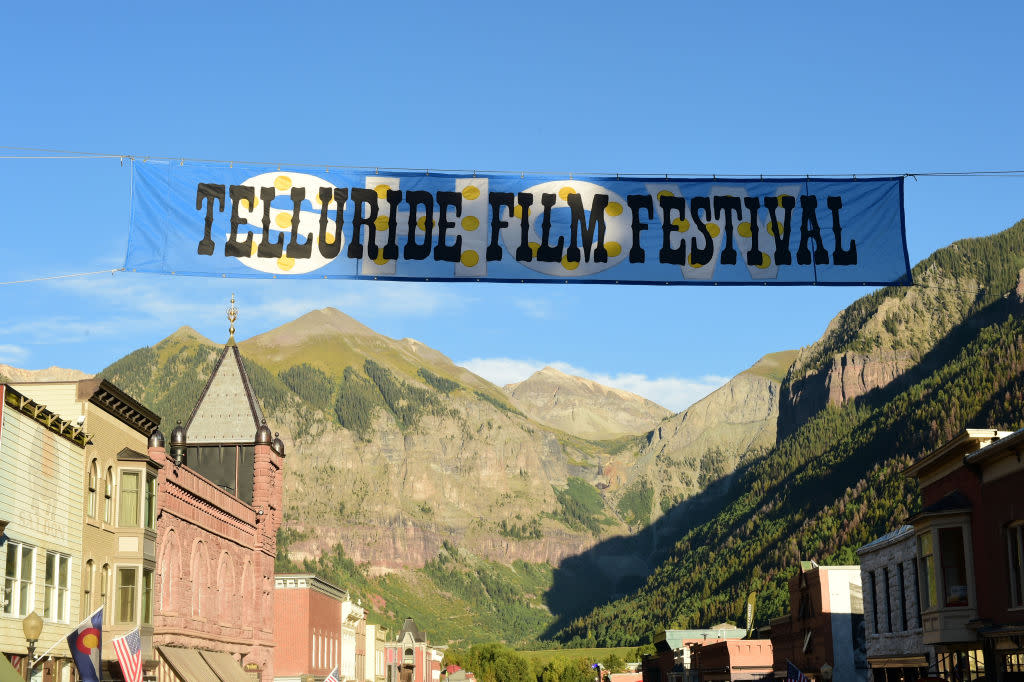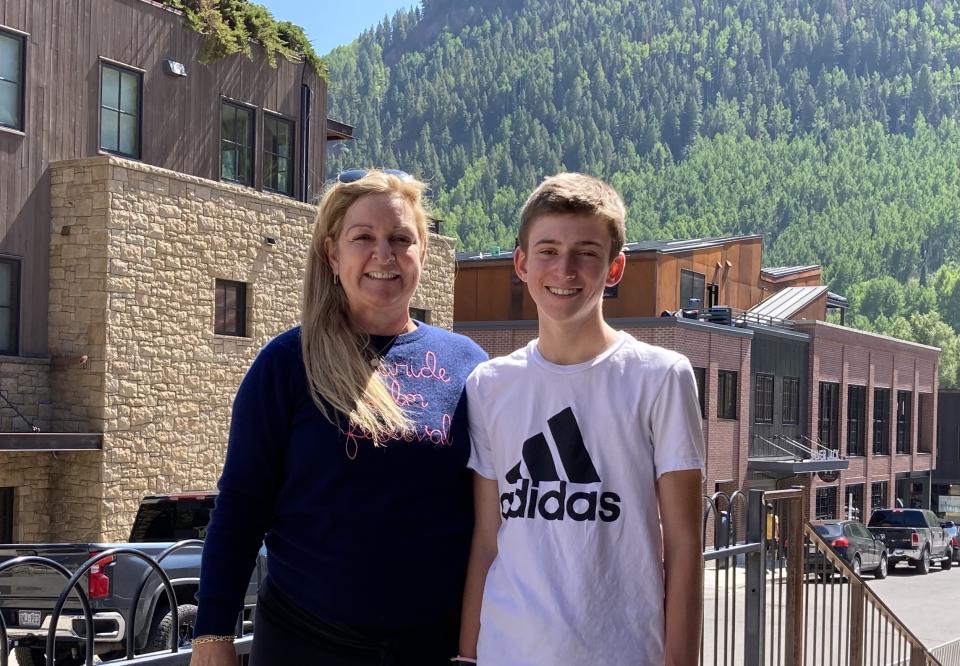Telluride and Sundance Are Essential Film Festivals, but Only if You Can Afford Them

Companies that send bevies of agents, executives, and publicists to film festivals as a matter of course are now mulling the unthinkable: They’re sending fewer people for less time, enforcing shared housing, or choosing between events.
“My usual [Telluride] hotel is charging me $700 a night,” said one Hollywood literary agent. “It’s cheaper to go to Venice.” He’s waiting to see if he can share a condo with other agents — a first. A press agent tells me that when he goes to Sundance 2024, he may have to give up his prized Eccles parking pass.
More from IndieWire
'Guardians of the Galaxy Vol. 3' and '65' Have Out-of-This-World Success in Home Viewing
Greta Gerwig Approached Timothée Chalamet for a 'Barbie' Cameo He Had to Pass on
Of course, this is the very definition of a first-world problem, but it also points to a larger issue at play. Going to a festival has always been fun, but their design was practical. It was the best — and sometimes, the only — way that people made talent discoveries, new deals, and acquired hot titles.
That analog monopoly changed with Zoom meetings and screening links, but what’s really making people reconsider how they approach major events like Sundance, Cannes, Telluride, and SXSW are inflationary travel and accommodation costs, post-pandemic price surges, and industry budget cutbacks.
It all conspires to create Hollywood’s latest existential dilemma: Is festival travel essential? Like, really really essential? What was once taken for granted is now a question mark. As one executive from a major film festival told me, “It’s a brutal moment.”
It’s perhaps most evident at the Telluride Film Festival. It has more than enough demand — its 3,000 passes sell out every year, the minute they go on sale — but the attendant costs have some of the faithful thinking twice.
Ski.com offers a direct charter flight between Los Angeles and Telluride’s nearest airport in Montrose, Colorado, an hour’s drive away. That ticket used to be under $900; today it’s $1,950. United lets you fly commercial with one stop for $1,100, while American offers a stopover for about $400 — but it will take you nearly 15 hours to get there.
Others save money by flying into Albuquerque, New Mexico; Grand Junction, Colorado; or Denver, and then rent a car for the 3-7 hour drive. However, the lowest-budget, no-frills Telluride hotel runs around $3,000 for five nights.
For one awards journalist, the price increases meant deciding to spend $1,000 less and book eight days in Venice rather than four in Telluride. “[Telluride] was $4,000-$5,000 for anywhere I wanted to stay,” she said. She saved the cost of a $750 badge (unlike most festivals, Telluride charges press for access; they’ve kept the same prices for years) and her flight was less than half of the Ski.com charter.
Telluride festival executive director Julie Huntsinger said she tried to convince Delta to pull back on the price to no avail. “‘How can you do this?’ They just say, ‘It costs what it costs.'”
Sometimes it could mean a strategic shift: If Netflix starts block-booking the condos across from Telluride’s Palm Theatre, other companies need to start planning further ahead.
An agent may have to share a luxury condo, but they’re prohibitive for indie filmmakers seeking buyers, much less the average film lover. “I don’t want it to be that only certain people can go,” Huntsinger said. “I want everybody to go. It’s students, people with fixed incomes, Kansas, Missouri, all those people who come from Oklahoma.”
The residents of Telluride don’t necessarily share the same concern. Local homeowners used to rent their homes through competitive lodging companies, which would negotiate comp rooms with the festival. Now many owners handle their own rentals, which meant the end of comps.
“AirBNB people left the lodging companies and jacked up their prices,” Huntsinger said. “There’s all this crazy surge pricing. We went from about $400,000 to house our staff; it’s gone up 20 percent. Inflation is not going up 20 percent, nor is income. But Telluride needs to knock it off next year.”
She’s referring to the town, not the festival, of course. At last month’s Telluride cocktail party at L.A.’s Pendry Hotel, one press agent said that over the past four years, their cost to attend the festival has crept up by $500 per person per year. Another L.A. press agency chief wonders if he can still break even when campaigning for clients at Sundance and Telluride.

This inflationary spiral is not limited to Telluride. A study from travel site Hopper showed that average hotel costs were up 54 percent over 2022. However, with a year-round population of 2,585 and no neighboring towns, Telluride operates from scarcity. Bigger cities have more venues and more competition, however far the room may be from the festival’s nerve center.
Park City (pop. 8,576) has seen increasing hotel development thanks to its popularity as a skiing destination, but that ski competition keeps prices high during the January Sundance Film Festival. In recent years, some attendees have taken to booking much cheaper lodging in Salt Lake City and spending their money on Ubers that take them to the movies 32 miles away.
“We’re in a time when everyone is looking at efficiencies, doing things smart, and being budget conscious,” said Sundance spokeswoman Tammie Rosen.
An increasingly popular Sundance option is attending for a few days, then heading home and catching up with other festival titles online. Some will eschew the in-person experience altogether. For 2024, Sundance festival has announced it will make some portion of its selections available online, but has not yet revealed which ones they might be or when they can be accessed.
Every city faces surge pricing around events or peak vacation times, whether it’s Park City, Provincetown, or Cannes. That’s why Sundance steers clear of the Martin Luther King, Jr. holiday weekend, which brings additional holiday competition.
“The world is so expensive,” said the festival executive. “We are trying to be adaptive and resilient. Everything is more competitive now.”

One studio distributor sends enough people to cover the ground game at the major festivals, while other decisionmakers stay home and follow up with links or screenings in order to make the final acquisitions call. “We are generally being more mindful due to the state of what’s going on in the business,” she said. This approach would have been unthinkable in the heyday of back-to-back late-night auctions, but today the much-slower metabolism for festival buys often stretches into weeks or months.
To some degree, festival attendance has been supported by Newton’s first law of motion: It takes a lot of discomfort to make people change long-held habits. For some, the prices are enough.
A freelance writer who has attended Telluride since 2009 said he may not come back after this year. “I pay out of pocket,” he said. “I’m not an in-house guy. I’m paying close to $600 a night for lodging. The experience is not worth it. It was $3,000 when I started and it’s more than doubled. Inflation can only account for so much. [Telluride vendors] know well-to-do people are coming into town, turning it into an elitist event. It’s heartbreaking. I was always going to go. I’m done after this year.”
Best of IndieWire
Sign up for Indiewire's Newsletter. For the latest news, follow us on Facebook, Twitter, and Instagram.

